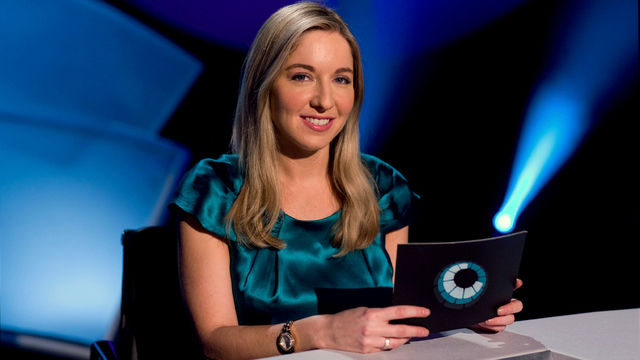
For those of you not in the know, or not from the UK, Only Connect is a brilliantly entertaining quiz show on BBC Four which I was introduced to when I moved home to live with my parents for a while. Teams of three have to guess the connections between apparently unconnected things, and it requires a basic level of general knowledge (i.e., unlike University Challenge or Mastermind, I can actually answer some of the questions - even the non-Classical ones!) and a bit of lateral thinking.
Each round in Only Connect features a selection of questions, up until now named after Greek letters - so teams had to choose a letter a random from alpha-zeta until all questions had been answered. However, the new series began tonight, and it turns out a lot of people have complained about the Greek letters. Apparently (and bear in mind I'm typing this from memory after the show so I'm not quoting exactly) the Greek letters are too elitist and pretentious, and downright silly, or words to that effect.
Of course, as host Victoria Coren read this, I was all up in arms. It's not elitist! (or pretentious, or whatever the exact word was) I was all ready to cry in hurt consternation to my parents. There's nothing wrong with Greek letters - and they're a bit more interesting than ordinary numbers or A-F! Of course, this is all tied up with attitudes to Classics and Classical education in this country, which I've posted about before, and the problem of Classics being viewed as elitist and not accessible, available or interesting to the majority of the population. As a person whose first secondary school taught no Classics at all, while it was not complusory in the second by the time I got there, and who studied Ancient History at an excellent but non-Oxbridge university, I tend to feel extremely frustrated and even, at times, a wee bit hurt by this assumption, but there we have it.
Then Victoria Coren revealed her solution (which, judging from her comments on Twitter, was actually hers) - instead of Greek letters, to acknowledge the complaints, this series will use Egyptian hieroglyphs instead!
Well, my parents and I all fell about laughing and absolutely loved it. An out-of-date, incomprehensible system has been replaced with an even more out-of-date and incomprehensible system, and those who complained about Greek letters as being too prententious now have an even deader and more obscure language to contend with. We were happy bunnies indeed.
However, I wonder if Egyptian heieroglyphs will seem more appealing and garner fewer complaints anyway. Unlike Greek and Latin, Ancient Egyptian is not associated with an elitist, old-boys'-club, upper class word not accessible to others in our (British) culture - rather, Ancient Egyptian is so obscure that very few people know it at all. Whereas Greek letters are familiar to mathematicians, scientists and people with a Classical education, Egyptian hieroglyphs are familiar only to Egyptologists - so, rather than leaving out those who did not have access to a posh education, these leave out more or less everybody. Then there's the fact that hieroglyphs are rather more fun than Greek letters. Whereas the words 'alpha', 'beta' and so on don't mean much to anyone except mathematicians, when a team asks for the 'horned viper' or 'eye of Ra' they're choosing something rather more exciting - I wonder if it's actually easier to choose from these options, since you can choose a snake because you're feeling dangerous, or two reeds because you feel in a literary mood, rather then the meaningless Greek lettes. Then there's the fact that, thanks to The Mummy, Stargate, Death on the Nile and countless others, Egyptology is simply cooler than the study of ancient Greece (which has yielded such gems as Clash of the Titans and the better but kid-dy Hercules).
The programme makers were asking for trouble when they included the phrase 'Jump the Shark' as a clue in a later round - one of the contestents, bravely but predictably, suggested that 'suddenly including Egyptian hieroglyphs' might be an example of a point where a programme jumped the shark. However, I have a suspicion that the hieroglyphs may prove genuinely popular - they are, if nothing else, unique, whereas Greek letters do occasinally appear in other highbrow-leaning programmes. Even if they do generate complaints, I hope that the programme will not have been thought to have jumped the shark, and just maybe everyone will eventually welcome the slightly simpler Greek letters back with open arms!




No comments:
Post a Comment